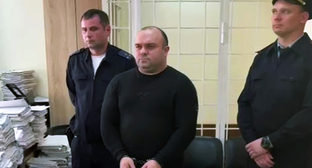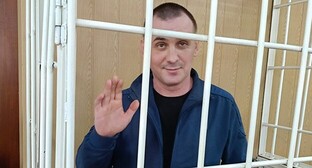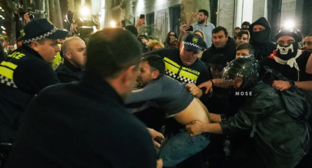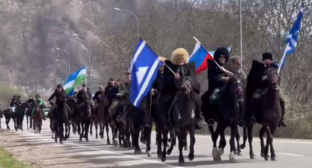19 May 2003, 00:46
Khatisyan, Alexander
Armenian politician and journalist.
Born on February 17, 1874, in Tiflis, in a family of a top government official. Graduated from Tiflis State Gimnasia (1891), received medical education in Moscow University and Kharkov University. In 1898, went abroad, perfected himself in clinics, studied hygiene, public health care, and municipal administration studies. In 1900, returned to Tiflis; in 1902, was elected the speaker of the City Duma and advisor of Tiflis City Council; since 1905, was a member of the Town Council and joined Armenian Revolutionary Party Dashnaktsutyun (Union). Was a member of the 1905-1907 Revolution. Since 1907, was a deputy mayor of the City of Tiflis; in 1910-1917, was the mayor of Tiflis. In 1912, during the hearings of the so-called Dashnaktsutyun case in St. Petersburg, was a witness. Since 1914, was a chairman of the Caucasian Committee of the Union of the Cities. Was one of the organizers of Armenian volunteer detachments during the WWI and assistance to Armenian refugees - victims of genocide of 1915-1916. In 1915-1917, was elected the deputy chairman of Armenian National Bureau in Tiflis.
After the February Revolution of 1917, Khatisyan joined the Dashnaktsutyun party. At the same time, Khatisyan headed the Armenian National Bureau (until October 1917), presided at the Meeting of Armenian political parties (March and April 1917), and took part in Transcaucasian peasantry Congress in Tiflis in June 1917.
Khatisyan was one of the follower of the "expectant management" (tactics of waiting) in the solution of the Armenian issue, which he connected to stability and strength of the democratic power in the center and with successful ending of the WWI in the Caucasus. Totally supported the policies of the Interim Government, in particular approved of the motto War till the Victorious End. Participated in convoking the Armenian National Meeting (congress of the eastern Armenian) and in creating the Armenian National Council (September and October 1917).
In April 1918, with the formation of Transcaucasian Democratic Federative Republic, was appointed the Minister of Finance and Provisions, as well as the Minister of Charity of Transcaucasian Sejm Government. Took part in peace negotiations with Turkey in Trapezund in February and in Batum in May. After the proclamation of independent Republic of Armenia on May 28, Khatisyan, together with O. Kachaznuni, signed Batum Peace Treaty on June 4. From August 1919 till May 1920, was the Prime Minister of Republic of Armenia. In summer 1920, within the Government Bureau, went abroad with a mission of organizing an internal loan in the Armenian diaspora and "Gold Fund" for Armenia. On December 2, 1920, on behalf of the government, signed Alexandropole treaty thus handing the power in to Armenian Bolshevik Revolutionary Committee.
Emigrated to Paris, continued his political activities within Armenian National Delegation - first as a deputy chairman, then as a chairman. Took part in Lausanne Conference (1922-1923) representing and defending the interests of the Armenian people before the League of Nations. During the Nazi occupation of Paris, Khatisyan moved to Porto, Portugal.
Deceased in Paris on March 10, 1945.
Authored articles on local government, medicine, economy, and culture, translated Armenian literature.





Комментирование через Кавказский узел